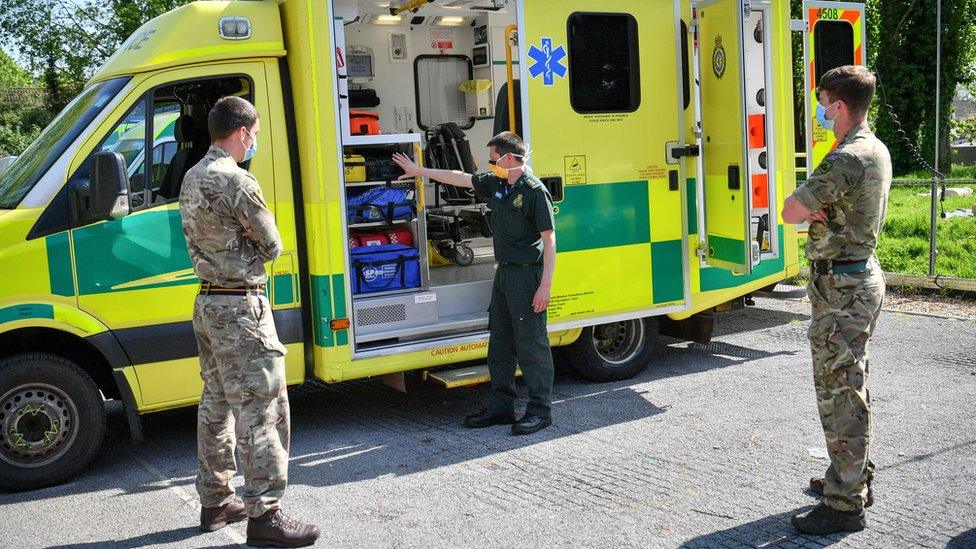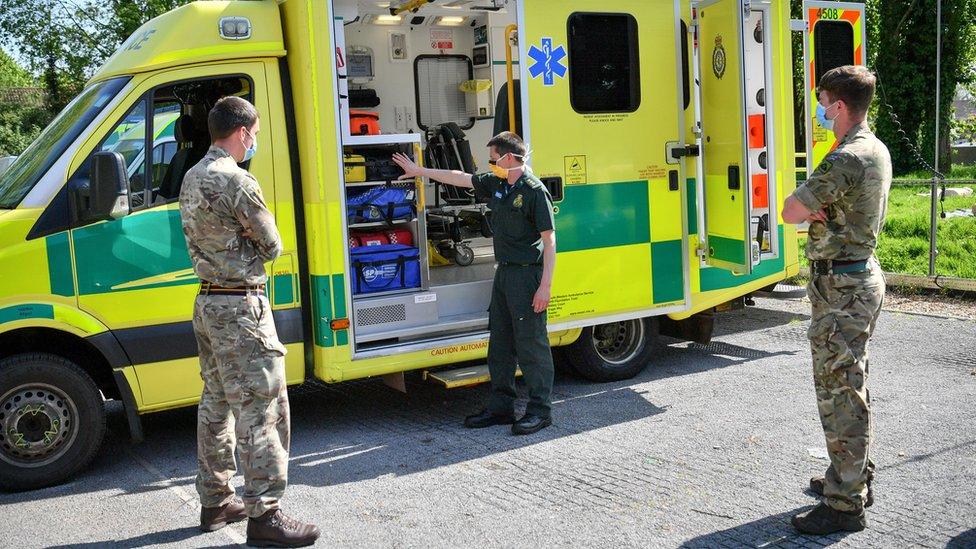Covid: Military called in to help East Midlands Ambulance Service
- Published

Military staff will be trained to help with non-emergency call-outs
A team of 60 military personnel will be brought in to help ambulance staff transport patients while paramedics are self-isolating or suffering from Covid.
East Midlands Ambulance Service (EMAS) said they would begin training this week to support crews responding to non-emergency cases.
The service said the move was "due to continued demand on the service", with some staff "unwell or self-isolating".
Other ambulance services are already receiving similar support.
Ben Holdaway, EMAS director of operations, said assistance from the military "will ensure our emergency ambulance crews can focus on attending the life-threatening and serious emergencies in our communities".
"Transmission rates of [Covid] in the community have continued to rise, and we have seen an increased number of EMAS staff needing to self-isolate or be absent due to testing positive," he said.
"Combined with the intense pressure the whole NHS system is under, and the high demand on our service, some of our less urgent and non-emergency patients are waiting longer for an ambulance than they should rightfully expect."
If you can't see the lookup, click here
Across England hospital trusts have declared critical incidents amid staff shortages, with patient demand remaining high during winter.
Last year more than 100 members of the Army were brought in to help ambulance services across the country.
EMAS said military staff helping its crews will not be driving on blue lights and will wear their military uniforms when carrying out their roles.
The military personnel will be required to drive vehicles, transport patients and equipment, and help paramedics carrying out basic life support, including using defibrillators.

Analysis
By Rob Sissons, BBC East Midlands health correspondent
It's no secret that EMAS has been struggling increasingly through the pandemic to get to the scene of 999 emergencies fast enough, and the biggest pressure at the moment is staff absence.
Calling in the military may sound like a drastic step, but it's something other ambulance trusts have resorted to.
The military personnel will be working on what is called the urgent transport service, set up in 2018 to deal with patients who typically need urgent medical attention but are not emergencies.
These cases are among those who face the longest waits during the pandemic, and all of this is happening at a time when EMAS is receiving more serious emergency calls and there are safety concerns.
The system is under strain, the number of incidents that require investigation up from 30 in 2020 to 53 in 2021.
Eleven of these cases were about ambulance delays, and the worry for EMAS is that even with the military's help things will continue to get worse before they get better.

Follow BBC East Midlands on Facebook, external, on Twitter, external, or on Instagram, external. Send your story ideas to eastmidsnews@bbc.co.uk, external.
Related topics
- Published7 January 2022

